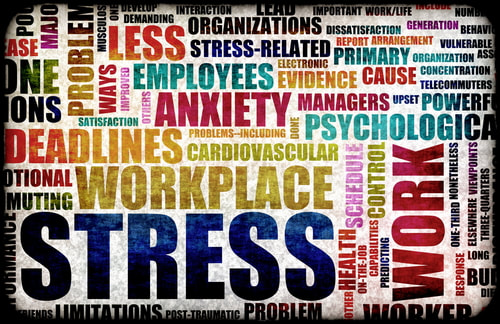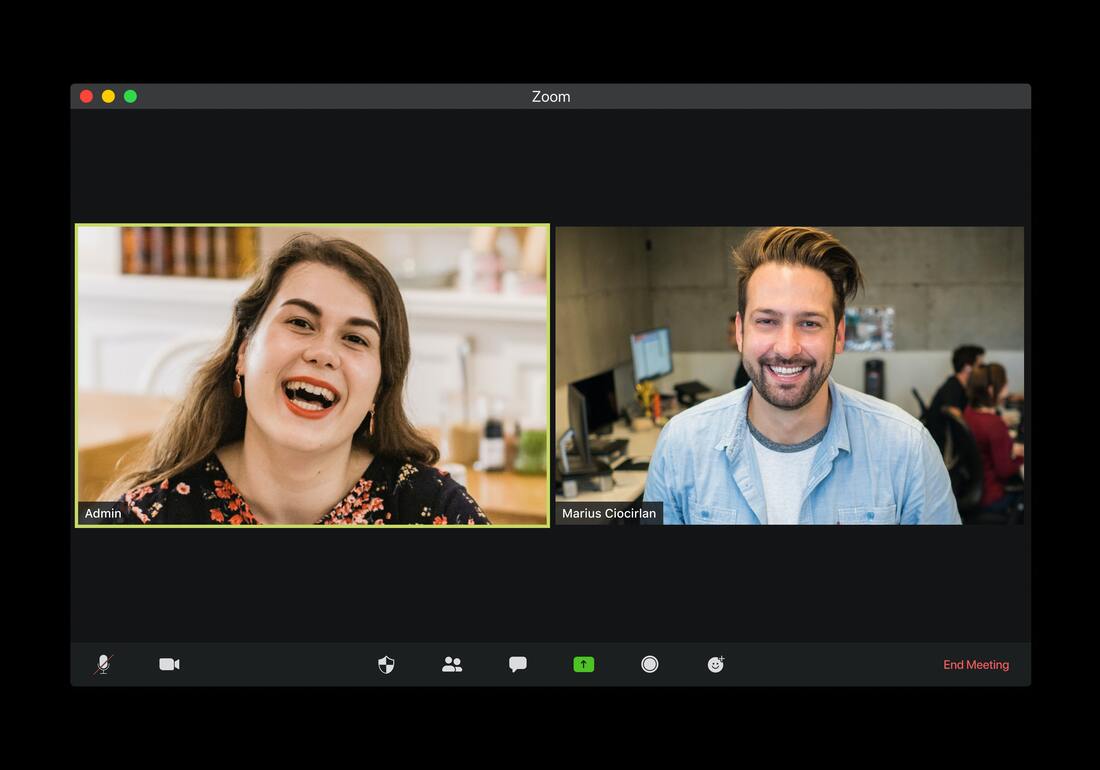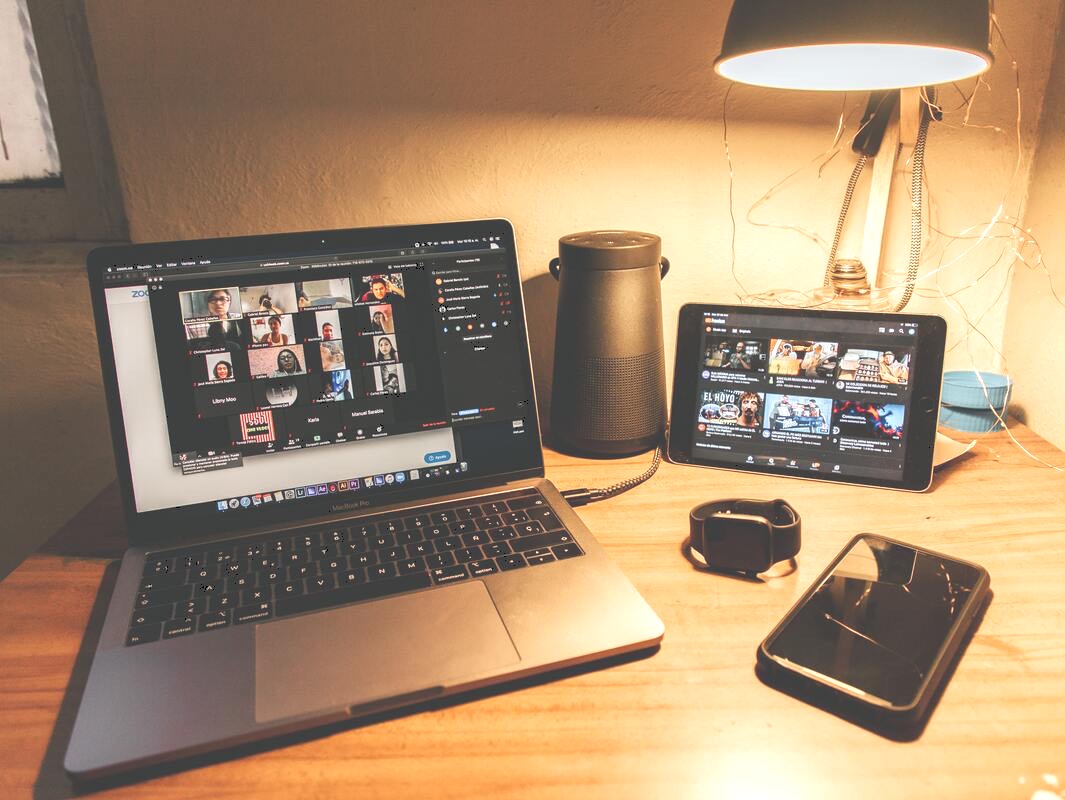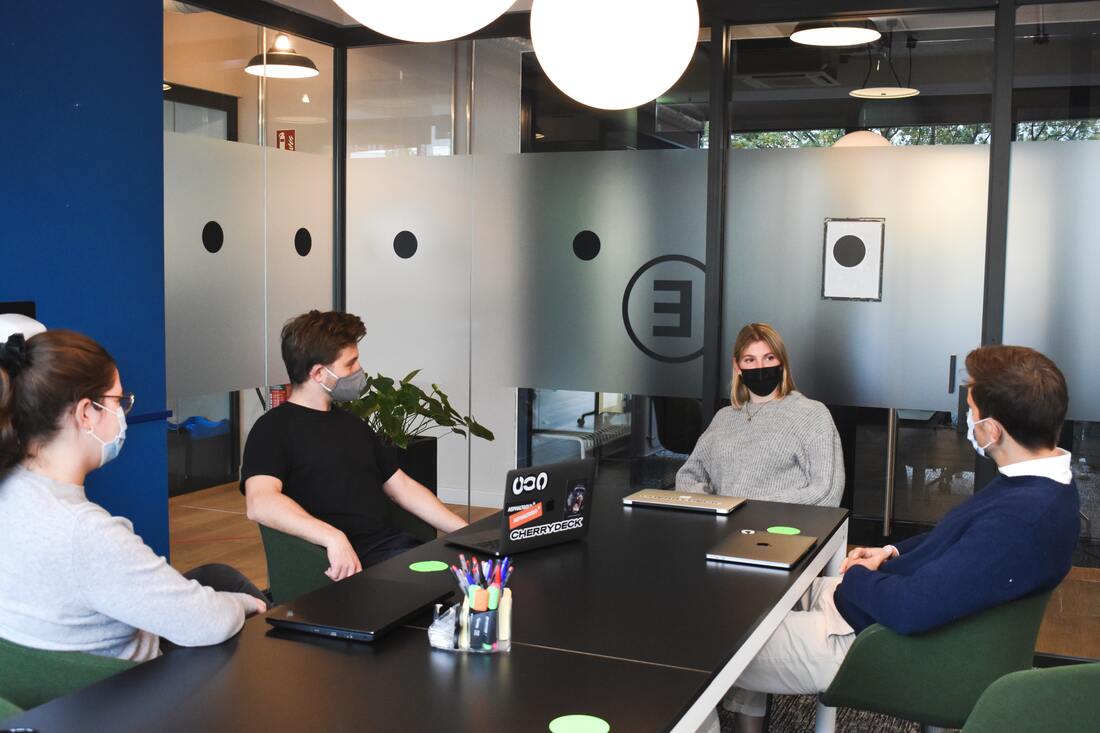|
One of the hardest jobs a leader has is giving corrective feedback to someone whose behavior is difficult, aka "the difficult employee." This person's behavior is adversely affecting the team, not just you. You've tried all the soft approaches like ignoring the behavior, making a joke about it, dropping hints -- and still he persists.
Finally the time has come to deal with this head on. You need to give him straight feedback. Most people would rather scratch their fingernails down a chalkboard than do that, but, hey, you are the leader, so it's your job. You bravely say yes, but wonder privately if, by talking to him straight, you're going to make things even worse. What if you could give this feedback to him in a way that would solve the problem and even enhance your working relationship with him? What if he would actually thank you at the end of the conversation, grateful that you cared enough to talk to him about it? This is possible! Here are 5 steps to follow in order to to make the biggest difference possible. You might consider experimenting with these steps also when the stakes are lower, BEFORE an employee get labeled as "difficult." 1. Prepare for the conversation ahead of time.
0 Comments
The Zurich International School Guide to Building Mental Resilience at Home, Work and School22/4/2021 Mental resilience is the cornerstone of a successful life - but can you build it in yourself, your family and your team?
Crying every morning may sound like a terrible way to start the day, but for life coach Suzie Doscher, Class of 1974 (1970-74), tears are a vital safety valve – and a healthy response to a global pandemic. “When a friend asked me how I was coping with lockdown, I told her I regularly had a good cry,” she says. “I sometimes started the day feeling uneasy or unsure, but I know it’s important to deal with my emotions so I release them by having a cry. That is how I got myself to a place where both my feet were firmly on the ground, and then I knew that I could handle whatever came my way.” Now, more than ever, our mental health matters. We live, work and study at breakneck speed, bombarded by choice. And with technology – and the recent lockdowns – creating an ‘always on’ environment, boundaries between life and work are increasingly blurred. Clearly, the ability to build our own mental resilience, in mentally healthy work and living spaces, is crucial. None of this is news to Brigitte Eigenmann, Head of Human Resources at ZIS. “Our mental and physical health are connected,” she says. “That’s why we need to take mental health seriously.” One of the most powerful words in the English lexicon today is “trigger.” We are finally accepting that there is a spectrum of internal and external influences that can legitimately take us off course. We understand that a person, place, object, event, even a smell, can trigger an emotional response so potent, we can be transported back to a trauma we’ve worked hard to forget or come to terms with. These triggers can threaten our well-being and disrupt feelings around our core values. They can appear out of nowhere and make us feel powerless.
As an aspiring leader, a trigger can become your biggest obstacle. A strong, effective leader needs to be able to identify their emotional triggers, understand what can set them off, and steel themselves when these triggers threaten to topple everything they’ve worked for. Here are some strategies to help you identify and deal with those triggers so you can grow and develop into the leader you are meant to become. The brain isn’t a muscle, but it still needs to “feel the burn” in order to build new neural connections that actually last.
Remember being in middle school and preparing for an exam? Chances are you spent your study time paging through your class notes or rereading the textbook. Maybe you highlighted important details as you went. We now know this is a pretty terrible way to study. You might’ve felt like you were absorbing the information, but you probably forgot most of it a few weeks after the test. In cases like these, you’re falling for what psychologists call “fluency”– you have a grasp of the information while you’re looking at it on the page. It feels good, easy, and reassuring. But that fluency doesn’t translate to actually recalling what you learned later on, let alone any change in skills or behavior. If an employee is missing targets, blowing deadlines, or handing in shoddy work, it can be tempting to push off any conversation about it and hope that things get better on their own. But you’re not just doing yourself and your company a disservice by staying quiet. An employee who’s falling short deserves to know it so that they have the opportunity to self-correct before things get too dire. And having to fire someone is even more uncomfortable than stepping in earlier.
Delivering the news effectively, though, is a delicate art. “It’s important to remember that this person has emotions and feelings attached to the information they’re receiving,” says industrial-organizational psychologist Amy Cooper Hakim, author of Working with Difficult People and founder of the Cooper Strategic Group. As a rough guideline, just follow the golden rule: “Handle this conversation the way you’d want it to be handled if you were on the other side,” says Justin Dauer, author of Cultivating a Creative Culture and executive at the technology company bswift. “As long as the dialogue is less oration-based and more collaboration-based, there are a lot of positives that could come out of it.” Here’s how to pull it off. People are inundated with information, and their brains have reached a saturation point. If you want to get someone's attention, you must be brief, according to Joe McCormack, who spoke at IdeaFestival 2015 in Louisville, Kentucky.
There are three tendencies that keep most people from being brief:
In case you haven’t heard, work-life balance is a myth. At Thrive, we’re all about work-life integration. It’s different from work-life balance in that it’s a more holistic — and realistic — approach. The truth is that none of us will ever achieve perfect balance, and striving to get there just stresses us out. Work-life integration acknowledges that sometimes work will demand more of your attention, and other times life will, but by setting boundaries and making sure you’re prioritizing healthy habits, you’ll be able to thrive in all facets of your life. We asked our Thrive community for their best tips for leaving work at work, and they had some pretty great strategies. Here are a few of our favorites: A brief overview of the basics of Personal Development as I experience the process based on my coaching practice.
1. The Present Eckhart Tolle refers to living in the now, which means being able to see and feel what your life is in the present moment. The present-day buzzword for this is to be mindful by practicing mindfulness. Standing in a beautiful park, by a calming body of water, or attending your child’s school play or other family event, and actually seeing the trees, feeling the flow and energy of the water, enjoying the play or event while feeling joy instead of being lost in your thoughts (which are taking you elsewhere) is experiencing the now, the present moment, being mindful of that very moment. Thoughts can propel you into an entirely different location even if you are not there physically. It seems odd that we do not just naturally live in the now. After all, almost everyone would agree that the present moment, the now, is all we have. When you are able to live in the day life becomes more relaxed and enjoyable. You empower yourself by influencing what you can influence. There are no quick fixes for work-related stress, but taking a day to recharge can be powerful for our mental well-being.
At Thrive, for example, we offer Thrive Time: a half or whole day off to recover from a spurt of intense work, which doesn’t count toward vacation, sick time, or other paid time off. Thrive Time is meant to recharge us, so we can return re-energized and feeling creative and productive again. Whether your company offers a similar policy or more general paid time off, if we’re not mindful, a day off can slip by, and instead of feeling refreshed when we return to work, we feel regret for how we spent our time away. To make the most of a day off, consider these three tips: Last week, a client asked me, “How can I delegate more effectively?” It made sense that she wanted to dig deeper into this. Delegation is a superpower for leaders — it’s one of the most powerful ways to scale yourself and your impact. I strongly believe: great leaders delegate better than average leaders.
Part of this is causality, though. If you don’t delegate, you’re probably going to burn yourself out as an average leader and never finish the journey to becoming a great leader. In some ways, delegation was always one of my strengths. But it was also something I leaned into too much once in a while. I was quick to pass on responsibilities and give others opportunities, but it was sometimes a scattershot approach. And it didn’t always come with the clear guidelines and support that makes delegation effective. So, where is the balance? How can we unlock this deep well of efficiency and effectiveness? Like most leadership topics, it begins with the leader. 1. Address Your Own Control Issues By Rebecca Muller, Community Editor at Thrive Global
Photo by visuals on Unsplash Part of starting a new job is the excitement of meeting your co-workers and making new connections. But with so much of the workforce continuing to work from home, joining a new team remotely can have its own set of challenges. Without the face-to-face interactions you’d normally have in company meetings or at team lunches, bonding with your new team members through a computer screen can be difficult. But that doesn’t mean it’s not possible to create real connections with your new colleagues even if you’re working remotely, says Risa Mish, J.D., a professor of management at Cornell University. “The virtual context may lengthen the amount of time it would normally take to form relationships” she explains, “But if you put the effort in, those relationships will happen.” Here are five tips Mish recommends to help you break the ice: by Leah Njoki
Ever been asked to say a few things about yourself? Perhaps you said you’re a good communicator, attentive to details, or a team player. The point being, we all define ourselves in a certain way. Here’s the paradox, though; It’s not what you say that is an accurate representation of who you are, but rather what you show yourself to be. That’s how people judge you. They respond to the image you project. As such, it’s critical to focus on what you do rather than what you say. If you want to sell yourself to the world in an authentic way, focus on these four really small things because they say a lot about you. This way, you’re guaranteed to make a lasting impression and command respect from people. 1. How you keep time .... By Nicole Loher at Her Agenda
Photo by Nubelson Fernandes on Unsplash Between the upcoming election, a second possible COVID-19 lockdown in the US, a shifting job market, and much more, there’s a lot to distract us from our goals. In a recent survey, 61.1% of participants that worked from home during the COVID-19 pandemic cited social media as the greatest source of distraction from work. On the other hand, 53.7% admitted that their smartphone has affected their productivity during the lockdown. According to Daniel Goleman, author of Focus: The Hidden Power of Excellence, distractions come in two forms: sensory and emotional distractions. Sensory distractions are external, or the things happening around you, and emotional distractions are internal and often a symptom of mental distraction or your inner dialogue. Try these five science-backed ways to help maintain focus: By Susan Begeman Steiner
Diane was new to the job and was having a problem with a co-worker named Matt. The team that Diane was leading needed Matt’s expertise for their health-care project, but he didn't show up for team meetings. He would miss one team meeting after another, always for seemingly good reasons. Diane heard from others on the team that Matt was arrogant, anti-social and notoriously difficult to work with. Diane and her boss met with Matt and talked to him directly about the advantages of his participating on the team, but nothing changed. By Karen Bridbord, Ph.D., Licensed Psychologist and Organizational Consultant
When I wrote about the inflection of workplace culture back in May, I was expecting the pandemic to be a distant memory by now. Remember when we all thought it was going to last three weeks? Yet today, six months into the most significant global health crisis of our lifetime, we find ourselves still grappling with uncertainty. Instead of creating new rituals to uplift and ground us as we find ourselves, as I recommended in the beginning of the pandemic, we now must find a way to sustain ourselves. We’re collectively exhausted. This pandemic is a marathon, not a sprint, and we need to act accordingly. This includes adjusting our company values and how they’re operationalized in our organizational cultures. By Suzie Doscher, Executive & Life Coach and Self-help Author
When a company focuses solely on reaching targets and continually pushes employees to reach these goals, the side effects often result in a high turnover and burnout rate. Ironically, this can cause the company NOT to achieve its targets in the desired timeframe. Pushing too hard in one direction results in an inevitable push back from the opposite direction. This is a law of nature that applies to the business world as well. Stressed employees trying to reach sometimes unrealistic or unnecessary targets tend to operate at half of their capacity. They start to make mistakes and lose track of the details amid their overwhelming work schedules. They tend to suffer physically exhaustion as well. All of this hurts productivity, the very thing the company is trying to increase. By Rebecca Muller, Community Editor at Thrive Global
What should you do when you know you’re feeling stuck at work, and you know you’re ready for something new — but you don’t know what that something will be? Researchers now call this often stressful stage the “exploratory phase.” And the process of contemplating your next career move — while living with a deep-seated feeling of uncertainty — can be scary. “Success is pretty much never something that happens immediately or seamlessly,” Traci Stein, Ph.D., M.P.H., a clinical psychologist and adjunct professor at Columbia University, tells Thrive. Stein says it’s important to remind yourself that almost everyone struggles with an exploratory phase in their career at one point or another, and the process isn’t one that should scare you away from trying something new. After all, exploring any new opportunity takes you out of your comfort zone. By Justin Black, Head of People Science, Glint Platform at LinkedIn
For organizations around the world, the past several months have brought a wave of unknowns. How do we set up our workforce to be successful in a fully remote setting? How do we make sure they’re safe, supported, and informed as things rapidly change? When will we return to the office and what will the impact be on our employees? The ambiguity is compounded by COVID-19’s novelty — no real playbook exists to help organizations respond and recover from a modern pandemic. CEOs and HR leaders have looked to health and safety officials, peers, and industry experts to help guide their plans. By Sweta Bothra, Lead Therapist at InnerHour, a Mental Health Platform
Photo by Brooke Cagle on Unsplash Our daily habits influence our lives in a large way. They determine how we think, behave and interact with others. In fact, according to researchers, our habits account for almost 40% of our behaviour every day. Building healthy habits can help us achieve our goals, improve our relationships, and live a happier and healthier life. Before we talk about how to build healthy habits, let’s understand how habits are formed in the first place. The 3 R’s of Habit Formation Every habit starts off with a three-part psychological pattern referred to as the habit loop. by Jeff Kavanaugh
Photo by Christopher Paul High on Unsplash As a partner at a consulting firm as well as a professor in the University of Texas’s MBA program, I not only team up with some of the brightest young business minds in the country, but hire them, too. And in the process, I’ve come to suspect that their expectations don’t always match recruiters’ needs. So to test my suspicion, I recently conducted a survey of over 3,000 students and recruiters to uncover their assumptions about the skills that lead to success in the job market. And the most startling gap that I found had to do with mismatched perceptions about leadership skills. WHY (AND WHEN) LEADERSHIP IS OVERRATED By Tim Davis Photo by Cherrydeck on Unsplash March 11, 2020 is a day destined for the history books: “WHO Declares Coronavirus Outbreak a Pandemic.” It was that day that, all around the world, leaders began scrambling, ripping through the pages of their crisis playbooks (or quickly creating them), searching for their pandemic play-by-play. Shortly after came the day the markets crashed on March 16, turning the crisis to both a health and economic calamity. Though etched in our minds with great infamy, it’s days like these that I believe make true leaders. Abraham Lincoln, Franklin Delano Roosevelt and Martin Luther King Jr. wouldn’t be the leaders we remember if it weren’t for the fiery trials that forged their legacies. This is true not only for politicians and activists, but also for business leaders. As president of The UPS Store, a business deemed essential throughout the pandemic, I’ve seen what works (and what doesn’t) when leading through a crisis, and how leaders can turn even a global pandemic into an opportunity. By Jessica Mudditt
Giving advice is often counterproductive, say experts, even when someone asks you for it. Here are some pointers on how to get it right. Think back to the last time you were discussing a challenge at work and someone chimed in to offer their opinion. Did you welcome their advice? Probably not. It’s more likely you dismissed it and thought to yourself: ‘You have no idea know what's going on.’ Or possibly the more defensive: ‘You don’t even know me.’ Coaching expert and author Michael Bungay Stanier believes that many of us are too quick to jump in with proffered solutions. He discovered that advice-giving has become endemic in the workplace, which prompted him to write The Advice Trap. In it, he argues that our tendency to dispense advice stems from society teaching us that success means having all the answers, and that leaders in particular must prove their value by liberally dispensing it. Opinion editorial by The American Genius
Photo by krakenimages on Unsplash Anthony J. Algmin is the Founder and CEO of Algmin Data Leadership, a company helping business and technology leaders transform their future with data, and author of a new book on data leadership. We asked for his insights on how strong leaders can see their teams, their companies and their people through this global pandemic (and other crises in the future). The following are his own words: Managers sometimes forget that the people we lead have lives outside of the office. This is true always, but is amplified when a crisis like COVID-19 occurs. We need to remember that our job is to serve our teams, to help them be as aligned and productive as possible in the short and long terms. By Susan Begeman Steiner
Honoring emotions is an important element in achieving Emotional Intelligence. And your moods – both “good” and “bad” -- are an important part of your emotional being. Learning to flow with your moods and be honest about them gives you more individual self-expression and even self-confidence. Have you noticed that things go more smoothly when you are in the mood to do them? Traffic lights change to green and you find a great parking place when you’re in a good mood. And when you’re in a bad mood, seems like almost everything goes wrong? Moods, good and bad, come in their own timing, so practically speaking, how can you capitalize on the good moods and mitigate the bad moods? Good moods are easy. Whenever possible, do things when you're in the mood to do them. Then you hit the green lights or, if you don't, you're not as likely to get upset about it. But what about the bad moods, when you just aren't in the mood to do something you have to do? How can you get yourself in the mood to enjoy what you’re going to do? Here are 3 keys that can help: Deep Patel - ENTREPRENEUR LEADERSHIP NETWORK VIP, Serial Entrepreneur
Self-sabotage occurs when your logical, conscious mind (the side of you that says you need to eat healthily and save money) is at odds with your subconscious mind (the side of you that stress-eats chocolate and goes on online shopping binges). The latter is your anti-self -- that critical inner voice that seems to hold you back and sabotage your efforts. Self-sabotage involves behaviors or thoughts that keep you away from what you desire most in life. It’s that internal sentiment gnawing at us, saying “you can’t do this.” This is really your subconscious trying to protect you, prevent pain and deal with deep-seated fear. But the result of self-sabotage is that we hesitate instead of seizing new challenges. We forgo our dreams and goals. In the end, we know we missed out, but we don’t understand why. So what can we do to stop the self-limiting behaviors? Here are eight steps you can start taking immediately to stop self-sabotaging your success. |
























 RSS Feed
RSS Feed